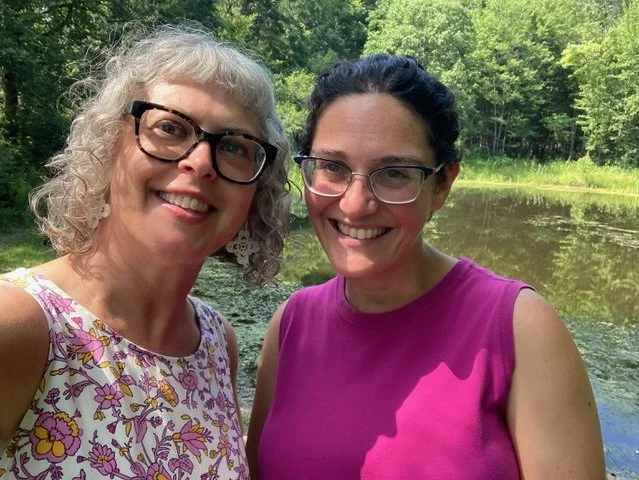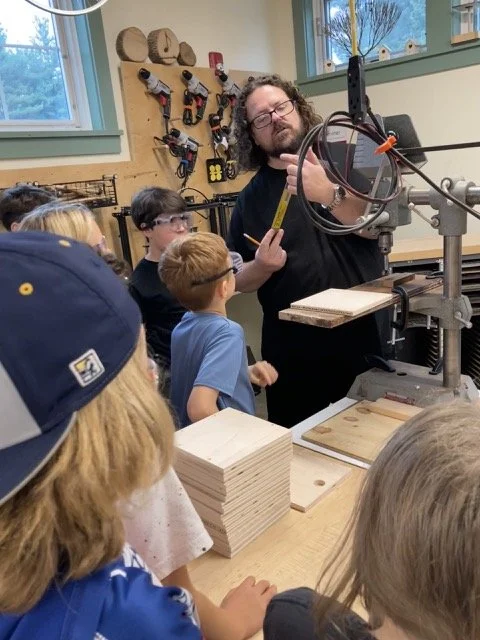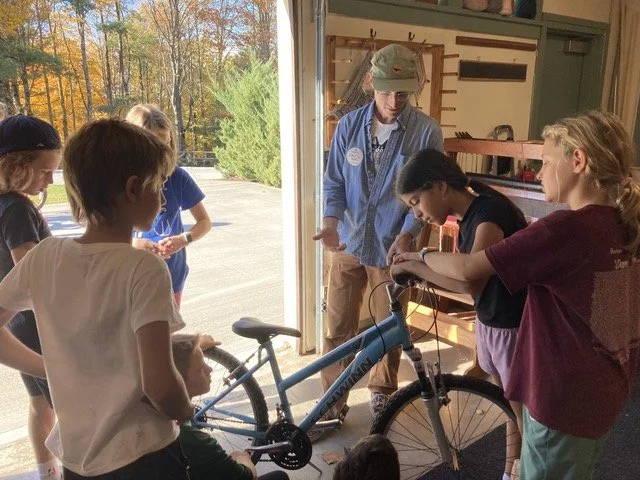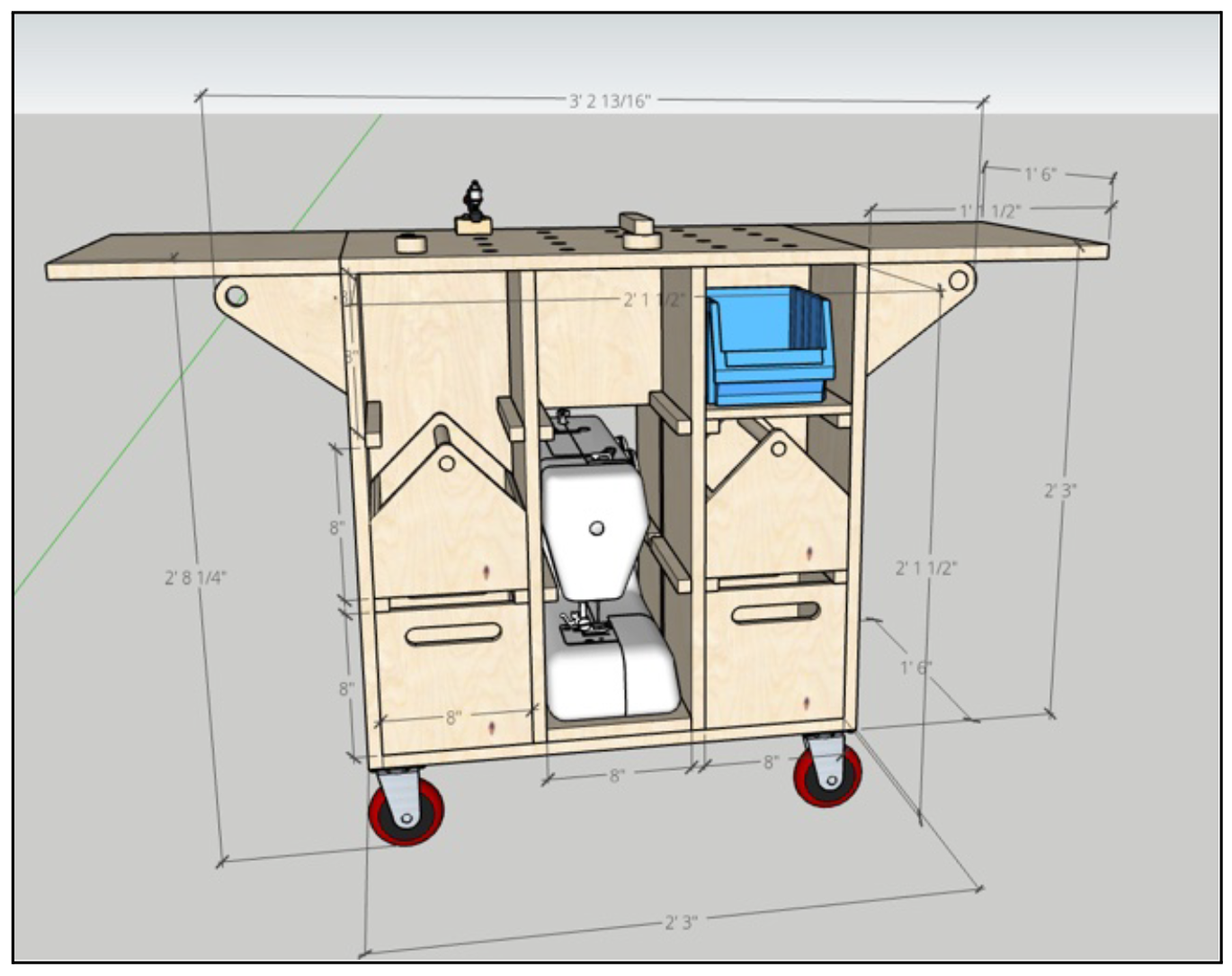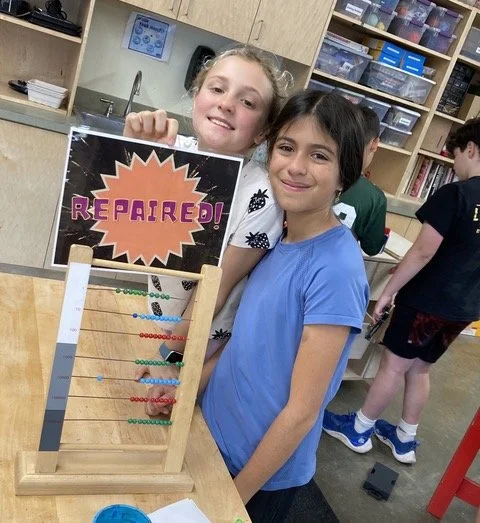August 2025
Fix It Carts – Bringing a Culture of Repair into Primary Schools
Megan Stasi and Debbie Hoffman
In today’s fast-paced culture, common objects like clothing, technology, and household goods are not built to last. When they break, a replacement item can be ordered and in use within a day or two and the broken object is in the landfill by the next week. Invisible to the consumer, the purchase triggers restocking the distribution center, which means transporting and manufacturing a replacement item, mining the raw materials, etc.
People have the power to disrupt this cycle.
Our respective K-8 schools in upstate New York, USA, are doing just that: Woodland Hill Montessori School and Robert C. Parker School are working to bring a culture of repair into the schools.
Our K-8 schools offer their facilities to be used for local repair events where skilled volunteers attempt to fix community members’ broken items. Clothes, furniture, electrical appliances, bicycles … basically anything you can carry in the door. The repair events are part of an international network of Repair Cafés, founded by Martine Postma in Amsterdam in 2009. Our local Rensselaer Repair Cafe is one of 8 Repair Cafés in the Capital Region of Upstate New York, and there are nearly 70 in the greater Hudson Valley from Westchester County to Lake George.
Jesse Roberts teaches the Repair Club elective class.
Interested in exploring teaching about repair, we found the innovative resource, Cultivating a Repair Mindset, where we read:
“A repair mindset enables and emboldens people to care more deeply about the world, the people, the objects, and the systems in which we’re all interconnected.”
We wondered: “How can we bring a repair mindset directly into daily school life? Can we use school culture and curriculum to transfer this knowledge to our younger generations?”
These questions led to two new initiatives:
Repair Club: During the 2024-2025 school year, fourth through eight graders (10 - 14 year olds) at Woodland Hill had the opportunity to take the Repair Club elective class. In Repair Club, students learn about the importance of sustainability and the idea of a circular economy, which extends the life span of objects by reusing and repairing them, then harvesting their components, then recycling their materials.
The students quickly became club facilitators: they designed flyers and intake forms, advertised their services, gathered broken objects from around the school and tried to fix them. All of these activities work to create a repair mindset in the students, one that aligns with Woodland Hill’s core values of community and sustainability, as well as project-based, child-centered learning.
Kris Ivers teaches the Repair Club about bicycle repair
Several skilled volunteers visited Woodland Hill to teach repair-specific skills during the Repair Club. Volunteer Ted Riese is good at fixing electronics. He opened up a Chromebook and showed students how to identify and find replacement parts to repair it. Volunteer Kris Ivers is a member of the Troy Bike Rescue. Kris helped students use their senses to troubleshoot broken bicycles before introducing them to the tools and materials to do simple fixes. Volunteer Jesse Roberts showed students how to operate a drill press and shared basic wood building skills.
The Repair Club made us wonder: “How can we go beyond an elective club and foster and facilitate repair culture throughout a K-8 building? Is there a way to make repair accessible to an entire school community?”
Students assemble pre-cut pieces to “build” the cart.
Working closely with volunteers from Rensselaer Repair Cafe, we came up with an idea:
Fix It Carts: Rensselaer Repair Café volunteer Greg Watson helped us submit a proposal to the The Culture of Repair Project. With their help, our schools received a grant to design, build, and stock several mobile, child-sized repair carts – “Fix It Carts.”
Upper Level Fix It Cart Plans
We designed the carts over a series of summer meetings, thinking through cart design from a teacher's perspective. We had our teaching goals for the classes, but also, if something broke somewhere around the schools we wanted the children to be able to wheel the cart over to attempt to make a repair. We wanted the larger school communities to be part of cultivating a repair mindset.
We worked with parent and skilled woodworker Jesse Roberts to iron out the logistics of building the carts. We wanted each Fix It Cart to be sized for a grade band: Lower Level Fix It Carts for children grades 1-4 (6 - 10 year olds), and Upper Level Fix It Carts for middle school children (11 - 14 year olds).
Jesse shared generously of his expertise and time, creating detailed plans and preparing the cart components for the students to “build” the cart framework and drawers in class. Here is one model of how to build a Fix It Cart. Here is one way to introduce a Fix It Cart to a school community.
To see the full extent of our pilot year’s activities, including lesson plans and tips and tricks for using the carts, please check out our Fix Forward website.
We had a blast working through the process of building, stocking, and using these Fix It Carts this year! We believe these early-stage Fix It Carts have potential and are excited to keep growing our carts and curriculum in years to come.
Educators, please use these resources as a starting point. Adapt what you see to fit the resources and needs of your school. If you don’t have volunteer woodworkers on hand, check out office furniture suppliers for seconds and reused carts. Or sometimes there’s a dusty unused something-er-other in the dark corners of your school storeroom that can be adapted. A local tool lending library, Repair Café volunteers and parents often have tools to spare; and local hardware stores are often more than happy to let the community know they supported stocking the cart.
However you do it, it’s fun and inspiring to see students take their repair enthusiasm and new knowledge out into the school, and to see staff and faculty members’ responses to their caring for what we have.
Happy repairing!
The Fix Forward entry in the Educator Resource Library offers a brief summary of, and links to, the Fix It Cart plans and accompanying teaching resources.
Megan Stasi
Megan Stasi is the K-8 Art & Makerspace Teacher at Woodland Hill Montessori School in Rensselaer, NY where she teaches art and makerspace classes and leads the Repair Club. She is a member of the Rensselaer Repair Cafe, organizing community events focused on repair. Megan is also the co-founder of the non-profit Up-Stitch, a creative reuse organization in Albany NY that collects donated fabric, yarn, and other sewing and needlework materials to distribute and sell back to the crafting community.
Debbie Hoffman
Debbie Hoffman has taught in a wide range of elementary schools in Florida and New York and she is currently a first and second grade at Robert C. Parker School. Debbie believes in the progressive teaching philosophy of her school, and her interest in repair stems from a desire to engage in authentic, practical projects — as a teacher, parent, and lifelong learner.
